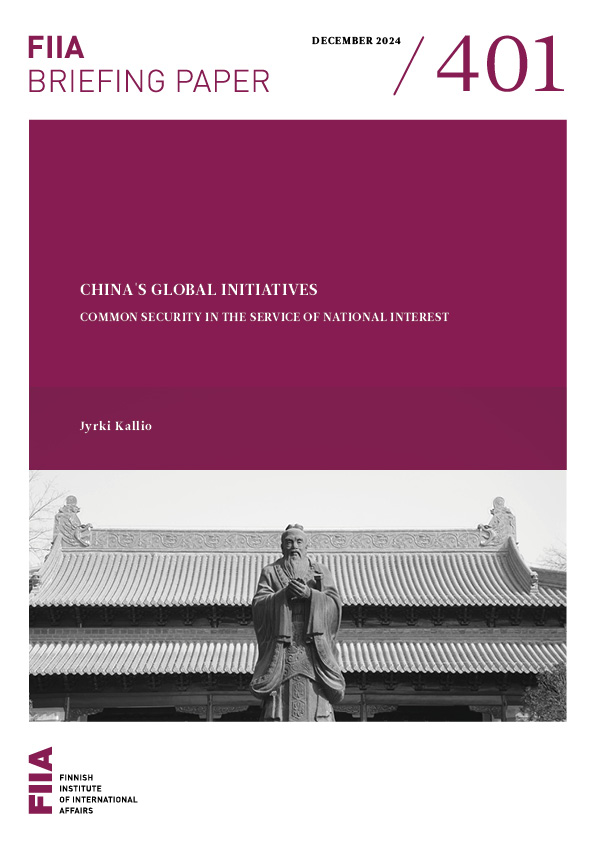The prosecution of heads of state has received renewed international attention following the decision by French courts to launch an investigation into the possible crimes against humanity committed by the Syrian President, Bashar al-Assad.
The prosecution of foreign heads of state by national courts is a contested practice grounded in national laws and the allowance under international law to prosecute for a limited number of crimes. These crimes include, for example, genocide, torture, crimes against humanity, war crimes and piracy.
The decision by a national court to try a state leader is always a move with foreign policy implications. It is usually met with reproach by the home state of the accused leader and, as such, strains international relations.
In order to remove the influence of politics in the exercise of jurisdiction, developing states have called for a standardization of universal jurisdiction. Such efforts should, however, be treated with caution as it is impossible to make fully apolitical decisions on the criminal prosecution of foreign heads of state.
Introduction
On 30 September 2015, French Foreign Minister Laurent Fabius announced the launch of investigations in French courts for crimes against humanity committed by the Syrian President, Bashar al-Assad.1 The announcement was made amid a polemicized debate on whether the international community should include Assad in efforts to end the Syrian conflict or not. Although a trial against Assad in French courts seems unlikely, the French launch of investigations is clearly intended to signal that Assad is a criminal who ought not to be at the negotiation table deciding on Syria’s future, and as such it can be understood as a foreign policy manoeuvre.
Heads of state are increasingly being subjected to criminal investigations for committing international crimes, either by the courts of their home states, international criminal tribunals, or foreign national courts. Yet meddling in the internal affairs of another country and its representatives is controversial; in particular, the practice of extending the jurisdiction of national courts to foreign state leaders has been criticized as abusive and politicized.
This briefing paper takes issue with these claims and looks into national prosecutions of foreign heads of state, taking the current case of Assad as a starting point. The contention is that criminal investigations and prosecutions of state leaders should not merely be seen as judicial acts, but also as acts with foreign policy implications due to the political nature of trying leaders of other states. The paper first explores the French investigation of Syria’s President Bashar al-Assad and the general development surrounding the prosecution of heads of state. Second, it looks into the foreign policy implications of such prosecution by contrasting the role of judicial policing with strained ties. Finally, the paper discusses whether or not it is possible or even desirable to reduce or do away with the political dimension of such trials, thereby minimizing the risk of international tension.
The French investigation of Assad
When French Foreign Minister Laurent Fabius asked the Prosecutor of Paris to start investigations into possible crimes against humanity committed by Bashar al-Assad, he motivated his action in the following way: ‘Faced with these crimes that offend the human conscience, this bureaucracy of horror, faced with this denial of the values of humanity, it is our responsibility to act against the impunity of the assassins’.2 As a result, the unit for serious international crimes (Office central de lutte contre les crimes contre l’humanité, les génocides et les crimes de guerre, OCLCHGCG) at the High Court of Paris, Tribunale de grande instance, is now handling the investigation. This request is the first attempt to fight the Syrian president’s impunity through national courts, as French-sponsored resolutions referring the Syrian situation to the International Criminal Court (ICC) before the United Nations Security Council have failed. In the Syrian situation the evidence has been mounting, but there has been no court available to examine it.
The case against the regime is largely based on photographic evidence provided by a man called ‘Caesar’, who worked for two years as a photographer for the Syrian military police in Damascus until his escape from Syria in July 2013. It was his responsibility to document the death of prisoners between the years 2011 and 2013, during which time he secretly compiled a substantial collection of over 55,000 photos of tortured and burnt corpses, as well as the remains of persons who starved to death in regime prisons.
Although the evidence is immense, a connection to France is still needed in order to proceed with the case. This means that French penal laws apply extraterritorially only in cases where a French national has committed offences abroad that would be regarded as crimes under French law, or when a French national has suffered from crimes abroad. Therefore, the Court will be competent in the case of Bashar al-Assad if it can establish that a French or a Franco-Syrian national is among the victims.3
An alternative basis for the competence of French courts to try Assad is provided by the doctrine of universal jurisdiction. According to this principle, any state is free to investigate and prosecute any person who is suspected of having committed genocide, war crimes, crimes against humanity or torture. Thus far, the French judiciary has been reluctant to base cases on the universal jurisdiction principle, although a change in attitude has occurred lately. An amendment to the French criminal legislation in 2010 now allows the punishment of international crimes although some limitations exist, mostly relating to whether the accused is resident in France or is present on French territory.4 Notably, French law allows in absentia trials except for the crime of torture, meaning that the presence of the person charged with the crimes is not required.
Increased prosecution of heads of state
The case of Assad before French courts is not unique; since 1990 over 25 heads of state have been charged with human rights crimes.5 Several of these cases have originated in international or hybrid courts. For example, the Special Court of Sierra Leone has tried Liberia’s former president, Charles Taylor; the International Criminal Tribunal for Rwanda convicted the former Prime Minister of Rwanda, Jean Kambanda; and the ICC initiated a trial against the sitting Kenyan President, Uhuru Kenyatta, and the Vice-President, William Ruto.
National courts – either the courts of the territorial state itself or foreign courts – also have an important role in bringing the perpetrators of international crimes to justice. For example, the former Ethiopian president, Mengistu Haile Mariam, was convicted and sentenced to death for genocide in 2006 by the country’s own judiciary. With respect to foreign courts, the landmark case is the denial of Augusto Pinochet’s immunity in 1998 by the UK House of Lords due to the gravity of the crimes of torture and crimes against humanity, although he was later released due to his medical condition. Former US Presidents George Bush Sr and George W. Bush Jr have both been charged with war crimes before Belgian courts, as has the former Israeli Prime Minister, Ariel Sharon, for allegations of crimes against humanity. At the time of writing, former Chadian dictator Hissène Habré is being tried on numerous atrocity counts in a Senegalese court before a special tribunal set up by the African Union.
Despite the development in holding heads of state responsible for their atrocity crimes, which was largely unheard of twenty years ago, it is important to note that top ranking leaders are still rarely tried by national courts. This is due in part to the fact that relatively few states actually exercise criminal jurisdiction over foreign nationals although their legislation would allow for that. After France, which has on several occasions proved its decisiveness in fighting impunity through national means, the leading countries have been Spain and Belgium due to their previous broad laws on universal jurisdiction. Judges in Spanish courts have been extremely willing to engage in foreign head of state prosecution, leading Spain to be called ‘the temple of international justice’.6 Augusto Pinochet was arrested in London in 1998 at the request of the Spanish authorities, and in 2014 a Spanish judge requested Interpol to arrest the former Chinese president, Jiang Zemin, for human rights abuses in Tibet. The latest move by Spanish courts took place in November 2015 when an arrest warrant was issued against, inter alia, Israeli Prime Minister Benjamin Netanyahu for the raid against the ship Mavi Marmara in 2010. Belgium again had an extremely broad law on universal jurisdiction for ten years in 1993-2003, which led to numerous high-profile cases being filed. Whereas France is increasingly open to the exercise of universal jurisdiction, the national laws of both Spain and Belgium have been changed in the opposite direction. The United Kingdom also changed its arrest laws on war crimes in 2011 to the detriment of human rights activists and organizations.
A second point to be made with respect to the prosecution of heads of state relates to the outcome of investigations and criminal proceedings. Not all of the situations that are being investigated end up with charges being brought, and even less lead to actual trials. Very few state leaders will find themselves ever being convicted and sentenced, let alone serving sentences in full. This is not only due to the fact that cases would be groundless, or that immunities protect incumbent leaders in particular from criminal prosecution. Instead, these high-profile trials, or attempts thereat, always involve a certain degree of politicization, which cannot be rebutted. This is not to say that the trials would be unfair or below due process standards. Instead, it means that the prosecution of heads of state trespasses upon the sphere of international politics, which will render such practice vulnerable to political considerations, particularly to the reactions of the home state of the leader under investigation.
Foreign policy implications of judicial policing
National courts and jurisdictional issues
The traditional territorial view on the scope of law is increasingly being questioned today. Laws are expanding beyond borders; for example, extraterritoriality of the international human rights law is accepted, and the domestic law of the United States has been used to file a civil lawsuit against the Zimbabwean sitting head of state, Robert Mugabe. Yet it is not self-evident that national courts are competent to try foreign state leaders or nationals as the jurisdiction of national courts is limited both in terms of persons and subject matter. The exercise of criminal jurisdiction is guided by many different jurisdictional bases, which presuppose the existence of a link between the prosecuting state and either the perpetrator or the victim, and by the explicit allowance under international law that criminal jurisdiction can be applied beyond national borders.
A number of international conventions, as well as customary international law, grant national courts the right to exercise jurisdiction without the necessity for a particular link under the banner of universal jurisdiction.7 Although the exact category of crimes that permit universal jurisdiction is debated there seems to be a consensus that with respect to piracy, torture, genocide, grave breaches of the 1949 Geneva Conventions and crimes against humanity national courts can exercise universal jurisdiction. Yet the ability of courts to effectively adjudicate and enforce judgments is hampered by several doctrines and practical difficulties. Immunities, amnesties, the requirement of presence at trials, ensuring evidence and so forth all stand in the way of making universal jurisdiction a practice to be reckoned with.
There are also internal limits on what national courts can adjudicate and what they do not have the competence to decide on due to the separation of powers, which is widely acknowledged as a constitutional principle in many states. This means that the judiciary and its courts exercise judicial power, whereas the executive branch, namely the government and its agencies, deal with the implementation of policies to which foreign policy belongs. Traditionally, these different powers have not trespassed upon each other’s spheres, and certain issues, such as the recognition of governments or states or declarations of war, have been considered to be outside the judiciary.
When it comes to the prosecution of foreign heads of state there may, however, be means in place which allow for governmental intervention. In most states, courts tend to follow governmental assessments of diplomatic status or decisions of immunity irrespective of whether they are obliged to do so or not.8 In some cases the judiciary is even required to gain the consent of a political official in order to proceed with prosecutions. In such evaluations of consent to prosecute, the danger of upsetting international relations may be one factor which affects the decision-making.
Strain on international relations
The expansion of jurisdiction to foreign states and their leaders has not been unproblematic. The launch of investigations against the leaders of sovereign states is taken to violate the sovereign equality of all states. Thus, it is said to constitute flagrant meddling in the internal affairs of a state. As a result, foreign prosecutions are generally rejected by other states and are understood as being detrimental to interstate relations.
Presidents, prime ministers and foreign ministers of a state are guaranteed personal immunity from all prosecution during their office because they are crucial in representing the state in international relations. They also enjoy functional immunity with respect to official acts undertaken in the name of the state. While personal immunity is temporally limited to the term of office, functional immunity can be claimed even after leaving office. The purpose of these procedural privileges is to protect state leaders so that they can travel and carry out their tasks as the highest state representatives.
A decision by a foreign court to investigate and prosecute as well as the issuance of an arrest warrant thus seriously infringes upon the capabilities of state leaders to lead their states and deal with both the internal and external affairs of their home state. For example, Kenyan President Kenyatta sought deferral from his trial in the ICC on the grounds that he was needed back home in Kenya to deal effectively with terrorism following the Al-Shabaab mall attack in 2013.
The reactions by states against prosecutions in foreign national courts embrace a whole range of politico-legal responses ranging from condemning statements to the initiating of international court proceedings as the exploration of a few cases will show. In 2013, a Spanish criminal court charged China’s former Presidents Jiang Zemin and Hu Jintao with genocide in Tibet based on an appeal by a Tibetan advocacy group. China reacted strongly, declaring that ‘[w]e firmly oppose any country or person attempting to use this issue to interfere with China’s internal affairs’.9 China further held that the legal case jeopardized the friendly relations between China and Spain.
The possibility of worsened relations with China was taken seriously by the Spanish government, which rapidly introduced legislation curbing the use of universal jurisdiction in Spain. Thus, the law was changed so that Spanish courts could no longer be at the forefront of the prosecution of foreign heads of state; the requirement of a Spanish link to the crimes – either in the form of the perpetrator or the victim – was thus laid down. It was widely acknowledged that the reform was motivated by diplomatic pressure from states whose nationals had been targeted by Spanish investigation and prosecution, such as China, the United States, Israel, Rwanda and Morocco.10
In some cases, states have reacted even more strongly to foreign national courts which seek to investigate atrocity crimes. Belgium was warned by the United States that it would lose its status as host to the NATO headquarters if it did not change the broad law which allowed for the prosecution of foreign heads of state. In another case concerning Belgium, the Democratic Republic of Congo initiated proceedings before the International Court of Justice (ICJ) in order to have the decision by Belgian national courts to prosecute its serving Foreign Minister Yerodia Ndombasi overturned.11 The ICJ upheld the immunity of serving Foreign Minister Yerodia, and Belgium was forced to withdraw the arrest warrant that it had issued on Yerodia. Ultimately in 2003, Belgium repealed the controversial law, which had been praised by human rights organizations but rejected by other states.
The cases explored above clearly show that when foreign national courts have initiated cases against Western or great power leaders the mission to implement criminal justice has been forced to yield to political considerations. Often, however, it is not only political relations that are at stake; intertwined with politics is economics and the danger of harming commercial interests. In Belgium, for example, the Federation of Belgian Enterprises, an association tasked with promoting Belgian businesses, publicly turned against the law allowing for universal jurisdiction, because there were rumours in Belgium about economic sanctions against it, boycotts of its harbours and the withdrawal of investments.12
When prosecutions turn against leaders of developing states, mostly in Africa or Latin America, charges of neo-colonialism also raise their head. It is described as a practice reminiscent of colonialism as it pits ‘European judges against African leaders’.13 These allegations are understandable when the Spanish judiciary acts against Chilean leaders, Belgian courts against Congolese governmental representatives, or French courts against the Syrian President. Indeed, the fact that a few former colonial powers have been the main actors in prosecuting foreign heads of state is bound to raise charges of a new ‘mission civilisatrice’ and a selective exercise of prosecutions.
Is de-politicization possible or desirable?
What is clear from prosecutions of foreign heads of state by national courts is the necessity for the political will to engage in the practice. Ultimately, political will is reflected in the national laws allowing broad jurisdiction with respect to crimes under international law, but each exercise of such jurisdiction against foreign heads of state in the form of investigation, prosecution or issuance of an arrest warrant is grounded in a range of historical, political, economic and legal considerations. It is a fact that there are often particular political ties between those states which exercise jurisdiction and those states whose officials are subjected to legal scrutiny.
Several states, notably among the non-aligned movement or developing states, have called for an investigation before the UN into how the exercise of universal jurisdiction could be standardized so that commonly accepted rules guide the decisions of national courts. Such standards would help to lessen the political dimension of the prosecution of foreign heads of state. Promoting the principle of subsidiarity would, for example, guarantee that foreign prosecution takes place only in cases where the home state is unwilling to see justice being served. A working group under the legal committee of the General Assembly was established in 2010 to consider the scope and application of universal jurisdiction, while the work of the International Law Commission, both with respect to the immunity of state officials from foreign criminal jurisdiction, as well as the topic of the obligation to extradite or prosecute, has been considered important for the future of universal jurisdiction.
Despite all the calls to eliminate the risk of abuse and politicization linked to decisions to investigate or prosecute foreign state leaders, one thing appears clear: these decisions cannot be reduced merely to questions of jurisdiction or immunity. The question that remains is whether one should, as a result of the inevitable political nature of the prosecution of foreign heads of state, simply abandon this practice? The answer to this can only be ‘no’. Although cases before national courts touch upon foreign policy, and suffer from practical problems such as evidence gathering and bringing the accused to court, one should not abandon this mechanism of bringing the perpetrators of serious crimes to justice.
National prosecution is one of many tools in the international justice toolbox. What should be emphasized, however, is a cautious approach to extending criminal jurisdiction to foreign state leaders. By carefully limiting the selection of cases to those clearly pertaining to the most serious international crimes, as well as to cases in which the home state is unwilling or unable to do something, the institution of exercising jurisdiction over foreign leaders will be strengthened. The more states engage in the practice of prosecution, the less likely it will be for criticism to be directed against the exercise of jurisdiction. National prosecutions should not, however, replace the institution of diplomacy and dialogue: judges are experts in the law, not in foreign policy. Instead, these cases can express support and serve to draw attention to the plight of certain victims, as well as send normative messages to all parties involved.
Conclusion
The practice of international justice being exercised by national courts is both applauded and denounced. Its selective application has been widely criticized for being political, leading states to general cautiousness in meddling in the internal affairs of other states. This trend appears prudent after numerous prosecutions by a few states in the early years of the twentieth century.
Yet the political element of such prosecutions cannot be eliminated altogether. These cases will always involve foreign policy considerations and most of the time they will act in conjunction with foreign policy goals. It is against this background that the French decision to investigate the Syrian leader, al-Assad, must be evaluated; the decision to launch investigations into his crimes will send a message about who should sit at the negotiation table concerning Syria’s future, and who should not. At the same time, it also highlights the fact that accountability for serious international crimes should always be part of the solutions to long-term conflicts.
Endnotes
1 The reports that speak about an investigation against the Syrian regime are imprecise concerning just who is being investigated exactly and for what specific crimes. Whether it is solely Assad or the broader circle of his administration remains unclear as the French judiciary merely states that investigations have been launched against X [‘contre X’]. There are also varying understandings of which crimes are being investigated as torture, crimes against humanity and war crimes are inconclusively mentioned.
2 Adam Nossiter, ‘France Opens Criminal Investigation of Torture in Syria under Assad’, New York Times, 30 September 2015, <www.nytimes.com/2015/10/01/world/europe/france-investigates-syria-torture-bashar-assad.html> (accessed 20 October 2015).
3 ‘La France ouvre une enquête visant Assad pour crimes de guerres’, Le Figaro, 30 September 2015, <www.lefigaro.fr/international/2015/09/30/01003-20150930ARTFIG00003-la-france-ouvre-une-enquete-visant-assad-pour-crimes-de-guerre.php> (accessed 1 October 2015).
4 Human Rights Watch, ‘The Legal Framework for Universal Jurisdiction in France’, 2014, available at: <www.hrw.org/sites/default/files/related_material/IJ0914France_3.pdf> (accessed 20 October 2015).
5 For a list of relevant prosecutions 1990-2008, see Ellen Lutz and Caitlin Reiger, Prosecuting Heads of State (Cambridge University Press, 2009), appendix at 295. After 2008, Kenyan leaders, inter alia, have been indicted before the ICC.
6 Ashifa Kassam, ‘Spain moves to curb legal convention allowing trials of foreign rights abuses’, The Guardian, 11 February 2014, <www.theguardian.com/world/2014/feb/11/spain-end-judges-trials-foreign-human-rights-abuses> (accessed 20 October 2015).
7 Magdalena Kmak, The Scope and Application of the Principle of Universal Jurisdiction, the Erik Castrén Research Reports 28/2011 (The Erik Castrén Institute: Helsinki, 2011) at 11-12.
8 Joanne Foakes, ‘Foreign Affairs in National Courts: The Role of the Executive Certificate’, Briefing, September 2015, Chatham House.
9 Michael Martina, ‘China denounces Spanish court’s Tibet case against ex-president’, 14 October 2013, <www.reuters.com/article/2013/10/14/us-china-spain-tibet-idUSBRE99D09120131014> (accessed 20 October 2015).
10 Rosa Ana Alija Fernández, ‘The 2014 Reform of Universal Jurisdiction. From All to Nothing’, 13 Zeitschrift für Internationale Strafrechtsddogmatik (2014) 717-727 at 717.
11Arrest Warrant of 11 April 2000 (Democratic Republic of Congo v. Belgium), Judgment, ICJ Reports 2002, p. 3.
12 Janá Panaková, ‘Law and Politics of Universal Jurisdiction’, 3 Amsterdam Law Forum (2011), 49-72 at 61.
13 Statement by Rwandan representative Jeanne D’Arc Byaje before the Sixth Committee of the General Assembly in the UN regarding the principle of universal jurisdiction. UN Doc. GA/L/3481, 15 October 2014.






